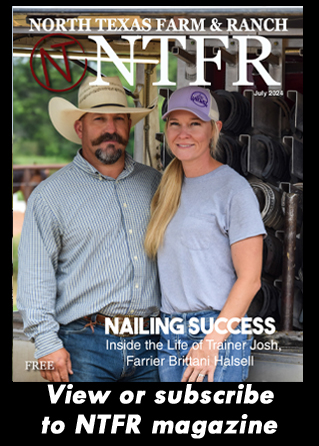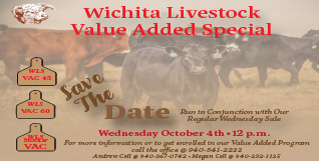Farm & Ranch
Farm bill decision-aid workshop set for Jan. 21 in SanAngelo
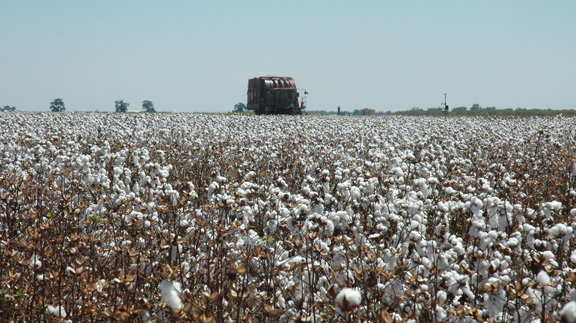
By: Steve Byrns
Writer: Steve Byrns, 325-653-4576, [email protected]
Contact: Bill Thompson, 325-653-4576, [email protected]
SAN ANGELO – The Texas A&M AgriLife Extension Service will conduct a farm bill decision aid-workshop from 8 a.m.-5 p.m. Jan. 21 at the Region 15 Education Center, 612 S. Irene St. in San Angelo.
“This workshop is specifically tailored to producers who don’t have Internet access, are uncomfortable with the data entry process or with interpreting the generated results from that data entry,” said Bill Thompson, AgriLife Extension economist at San Angelo and the workshop’s main speaker.
The new farm bill eliminated many of the commodity programs producers were familiar with and had used for years, Thompson said. This new program gives producers the ability to choose between three distinctly different commodity programs in addition to possibly reallocating crop base acres and updating program yields.
“The details of these programs can be complex to comprehend and very difficult to work through to determine which program best addresses the risk-management need of each farm,” Thompson said. “This is why the Agriculture and Food Policy Center in the Department of Agricultural Economics at Texas A&M University has developed an online producer decision aid, specifically for helping producers with these options. The decision aid is available at https://usda.afpc.tamu.edu/ .
“The decision aid also requires a lot of historical data, which is readily available from their crop insurance agent and the FSA office. The data entry process is relatively simple and the results are available almost instantly, allowing producers to run multiple scenarios quickly to determine which option best fits their respective operation.”
Thompson said through this hands-on workshop, producers will enter actual production data and begin to evaluate their choices from among the Price Loss Coverage, or PLC, program and two distinctly different Agricultural Risk Coverage, or ARC, programs. With this information, Thompson said producers will be able to sign up their farms at their respective Farm Service Agency office.
The workshop is free, but participants are asked to RSVP by Jan. 20 by calling the AgriLife Extension office in Tom Green County at 325-659-6524. More information is also available by calling the county office or by contacting Thompson at 325-653-4576, [email protected] .
-30-
Farm & Ranch
Ag Elsewhere: Wyoming
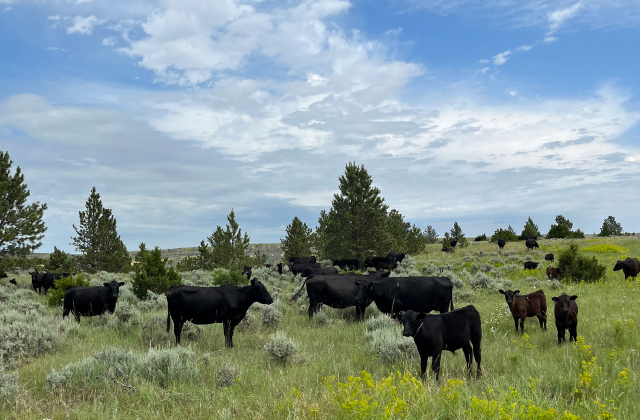
By Tressa Lawrence
Ranchers across northeast Wyoming and the surrounding areas saw record moisture levels in 2023. The year 2024 has seen significantly less moisture to date.
Farm & Ranch
Ag Elsewhere: Montana
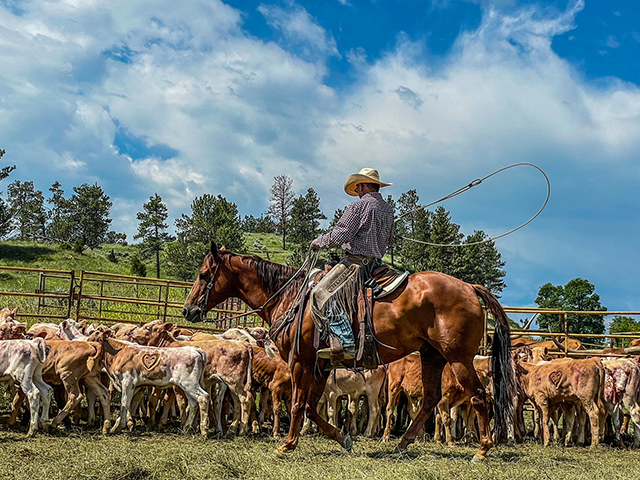
By Lindsey Monk
People are finishing up brandings. Here, Danny Walter is shown getting it done.
Farm & Ranch
Animal Disease Traceability

By Barry Whitworth, DVM
On July 6, 2020, the United States Department of Agriculture Animal and Plant Health Inspection Service (APHIS) posted in the Federal Register a proposal that radio frequency identification tags be used as official identification for cattle and bison. Following a period for public comment, the USDA APHIS released a statement on April 24, 2024, with the amended animal disease traceability (ADT) regulation for cattle and bison. The full press release may be found at https://www.aphis.usda.gov/news/agency-announcements/aphis-bolsters-animal-disease-traceability-united-states. Under the new rule, cattle and bison will need to be identified with tags that are both visual and electronic.
The USDA defines ADT as knowing where diseased and at-risk animals are, where they have been, and when the animal disease event took place. A system that allows for efficient traceability of livestock in the United States is essential for animal health and reducing the economic effect of a foreign animal disease outbreak and other diseases on livestock producers as well as others whose well-being depends on livestock production.
To read more, pick up a copy of the July issue of NTFR magazine. To subscribe by mail, call 940-872-5922.
-

 Country Lifestyles1 year ago
Country Lifestyles1 year agoScott & Stacey Schumacher: A Growth Mindset
-

 Country Lifestyles7 years ago
Country Lifestyles7 years agoStyle Your Profile – What your style cowboy hat says about you and new trends in 2017
-

 Equine10 months ago
Equine10 months agoThe Will to Win
-

 HOME7 years ago
HOME7 years agoGrazing North Texas – Wilman Lovegrass
-

 Country Lifestyles4 years ago
Country Lifestyles4 years agoAmber Crawford, Breakaway Roper
-

 Outdoor9 years ago
Outdoor9 years agoButtercup or Primrose?
-

 Country Lifestyles8 years ago
Country Lifestyles8 years agoDecember 2016 Profile, Rusty Riddle – The Riddle Way
-

 Country Lifestyles8 years ago
Country Lifestyles8 years agoJune 2016 Profile – The man behind the mic: Bob Tallman

